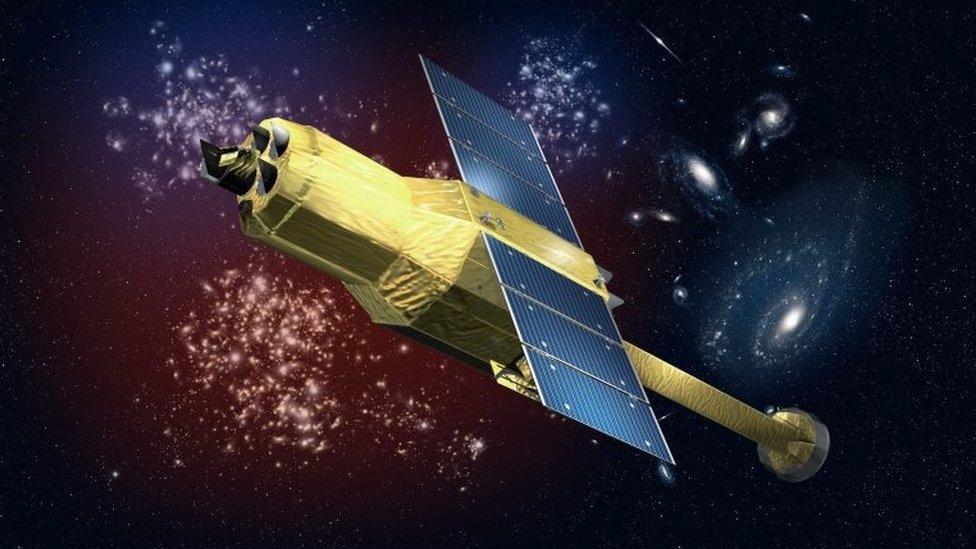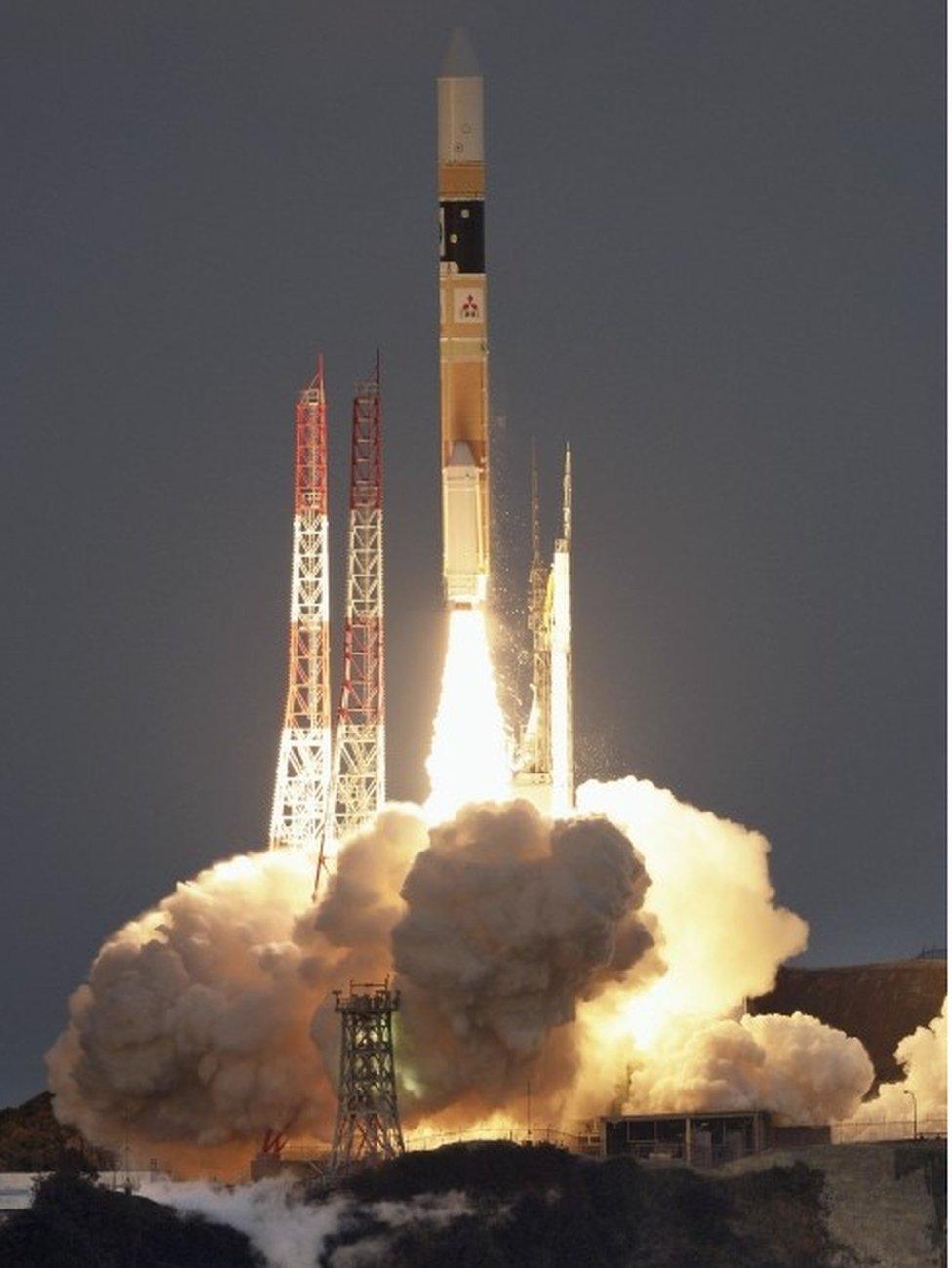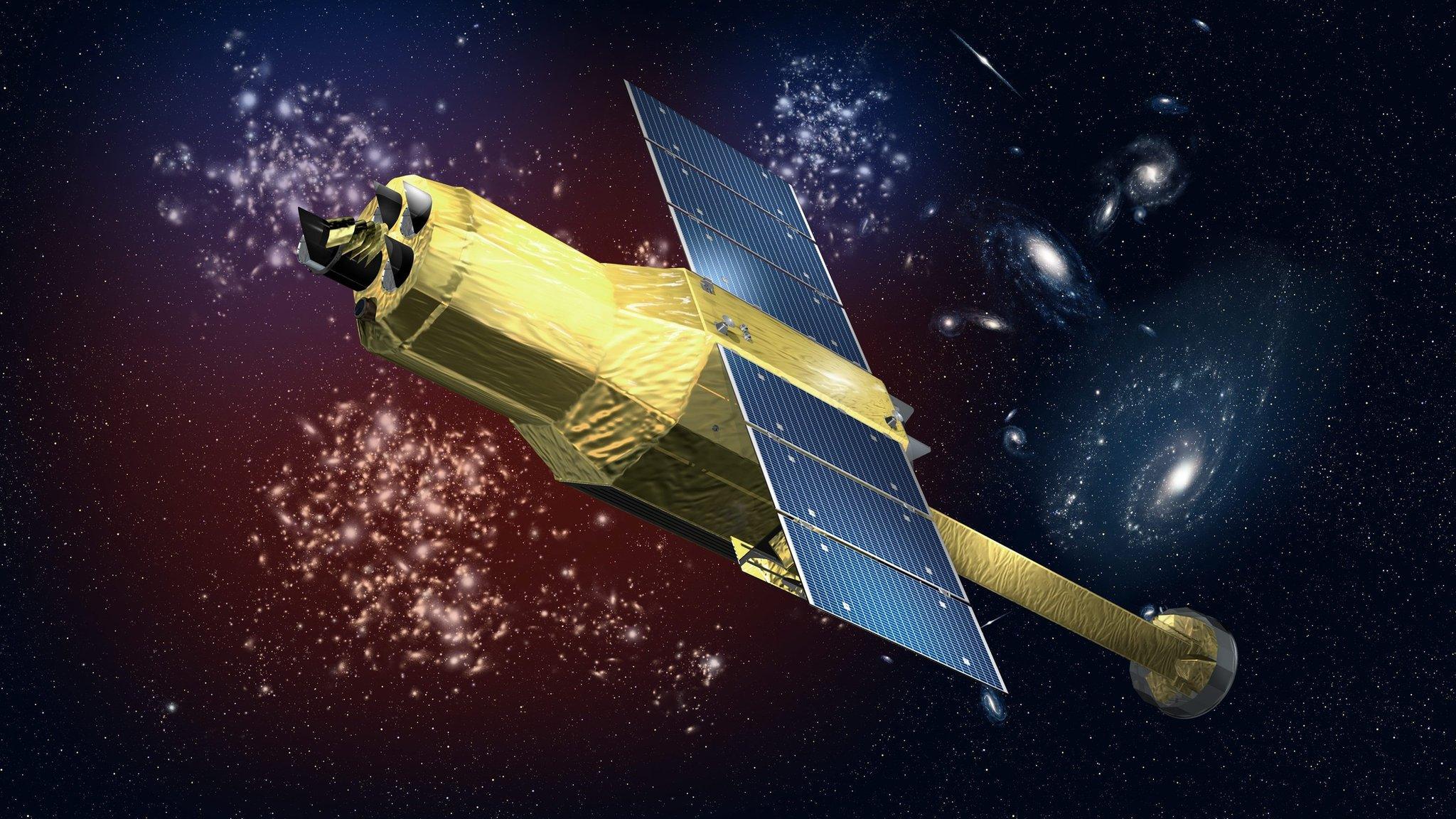Hitomi: Japan to abandon costly satellite sent to study black holes
- Published

The agency said it was highly likely that two solar arrays had broken off their bases
Japan's space agency had said it will abandon efforts to restore or retrieve the ASTRO-H satellite.
Also called Hitomi, the satellite was launched in 17 February to observe X-rays coming from black holes.
Contact was lost with $273m satellite on 26 March sparking a scramble by Japanese scientists to find out what had happened.
The next time a similar satellite will be launched is in 2028 by the European Space Agency.
Hitomi was a joint effort between Japan Aerospace Exploration Agency (JAXA), NASA and other groups.

The rocket carrying the ASTRO-H satellite lifted off from Tanegashima Space Centre in Japan
"We concluded that the satellite is in a state in which its functions are not expected to recover," Saku Tsuneta, director general of JAXA's Institute of Space and Astronautical Science, told a press conference on Thursday.
"JAXA will cease the efforts to restore ASTRO-H and will focus on the investigation of anomaly causes," the space agency said in a statement, external.
It added that it was likely two solar arrays had broken off their bases.
Until now, there was hope that the satellite could be recovered after JAXA said it had received three signals from Hitomi. It said on Thursday that it now thinks those signals were not sent by the spacecraft.
- Published29 March 2016
